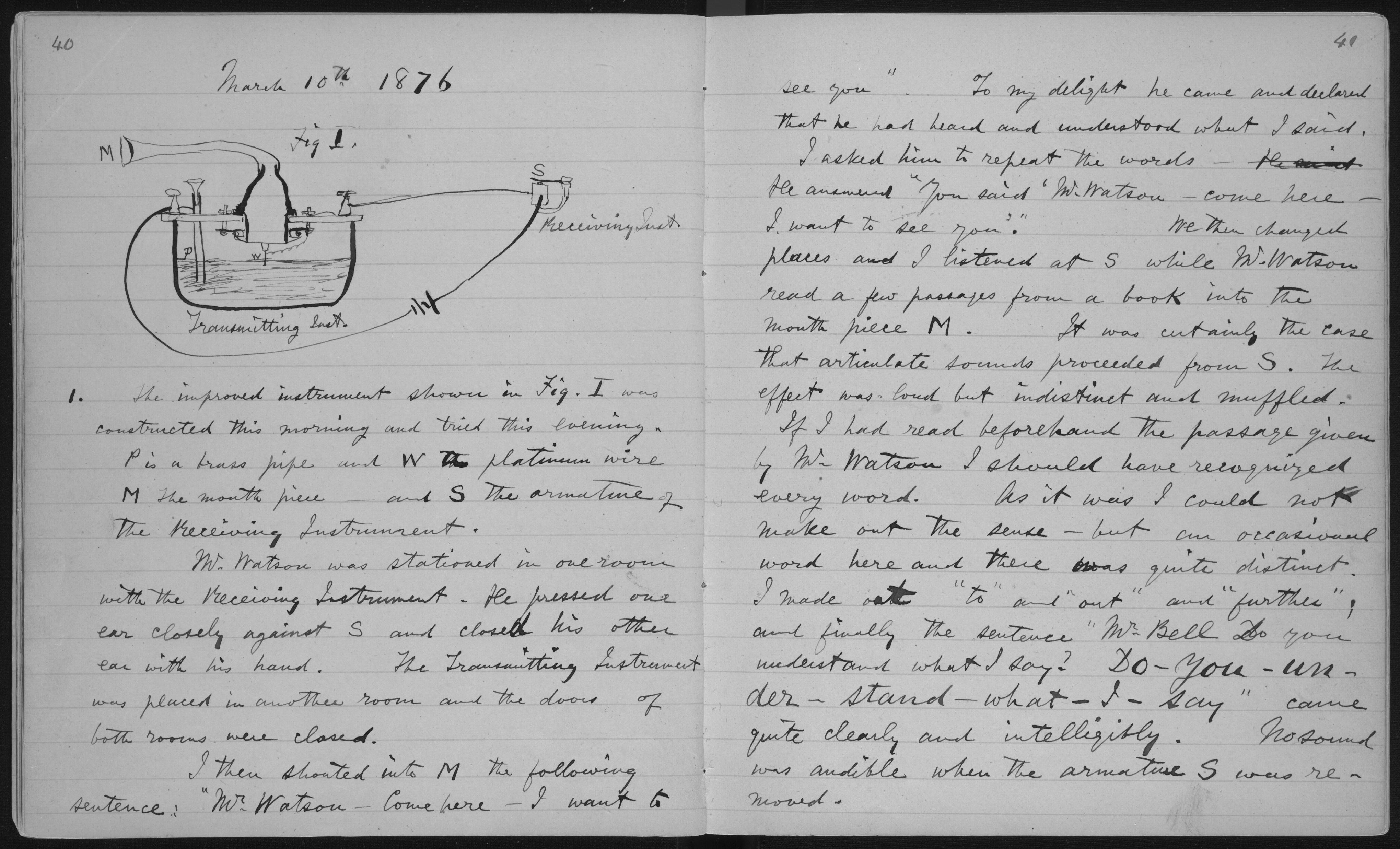lablog - a Jekyll template for lab notebooks
by Florian Schneider, 10 October 2014
One of the problems with wikis was, that I wanted a chronological documentation of progress. That is an important feature of a lab notebook, since it allows to trace the development of an idea much better than a wiki which only shows the current status of thought.
Researchers use a lab notebook to document their hypotheses, experiments and initial analysis or interpretation of these experiments. The notebook serves as an organizational tool, a memory aid, and can also have a role in protecting any intellectual property that comes from the research.
says Wikipedia

Pages 40-1 of Alexander Graham Bell’s unpublished laboratory notebook (1875-76), describing first successful experiment with the telephone. Source: Wikimedia Commons
So I started to build a Jekyll template and released it on GitHub which adds functionality that facilitates
- writing of daily logs
- collecting and linking information
- drafting of articles and essays
- building a knowledgebase
Basically, you write simple text files that are automatically turned into a very clear website.
Find the demo here. I invite you to download it from GitHub and check it out for your own use and tell me what you think.
Features:
- Todo Lists using the GitHub syntax
- [ ]. - Tags allow you to link posts of a certain topic, project or field of interest. Buttons for the next and previous post and automatic linking to related posts based on common tags facilitates browsing through posts.
- Post Archive is a chronological list of all posts, which is perfect for the use as a lab diary.
- Multi-authoring for entire research groups due to an
authortag in the front-matter - log your geolocation with the
placeparameter - math equations using mathjax.org (renders $ \LaTeX $ syntax).
